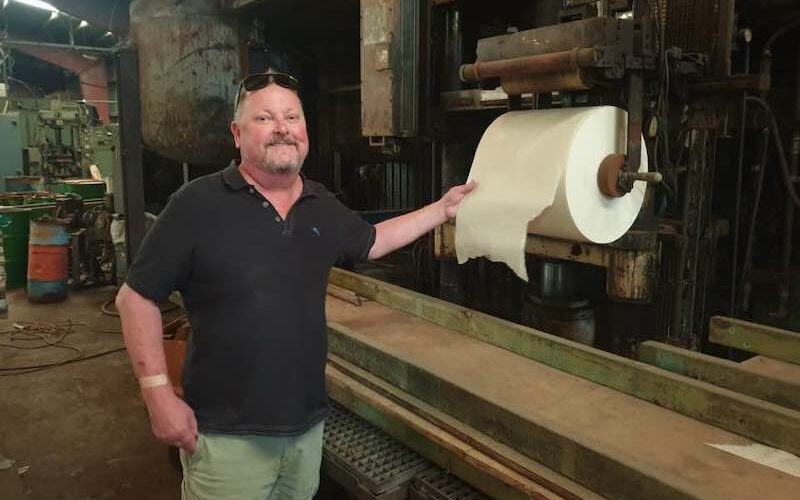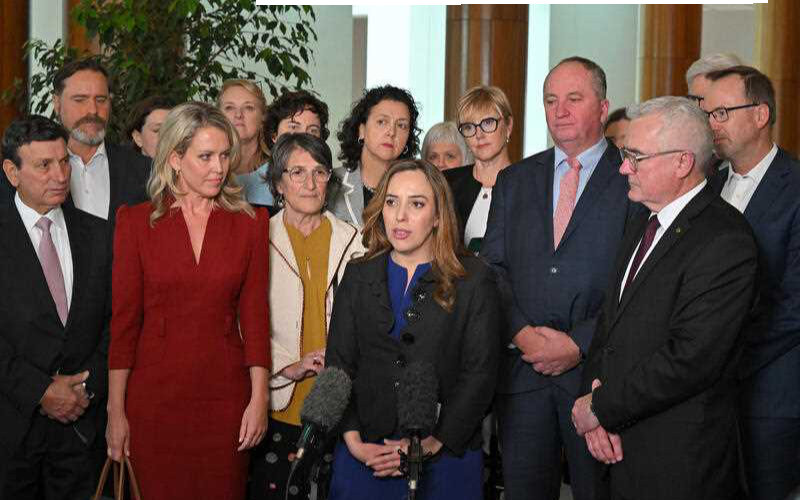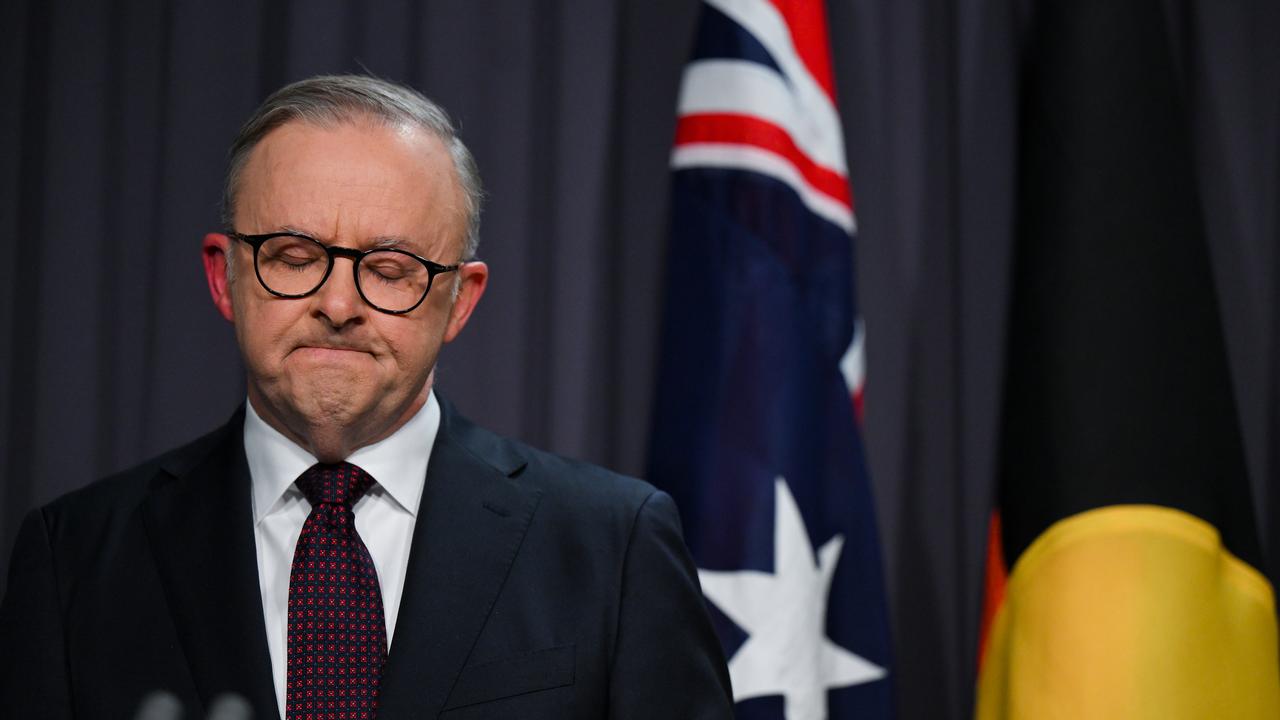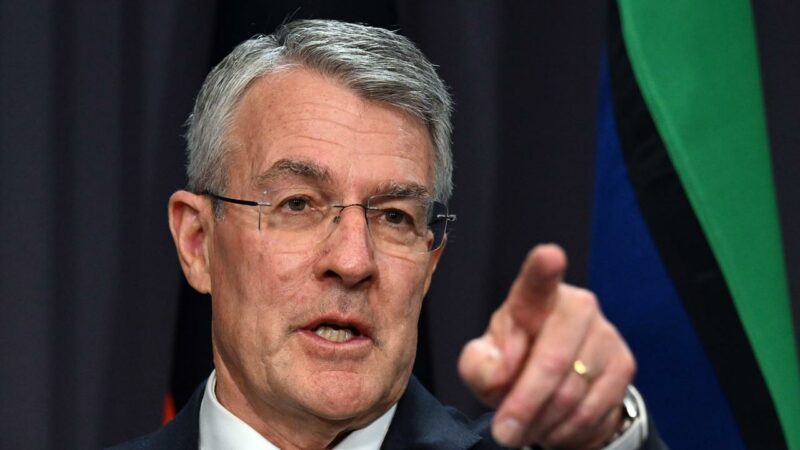
This post was originally published on Michael West.

This post was originally published on Michael West.
You can do this by reading my book. DINNER WITH THE FOUNDING FATHERS Discover why there were no FOUNDING MOTHERS, why ABORIGINES were ignored and why NEW ZEALAND walked out of FEDERATION negotiations. Enjoy my depiction of the main characters, Henry Parkes, Edmund Barton, Alfred Deakin, Samuel Griffith, George Reid, John Forrest, Charles Kingston and …
Continue reading CELEBRATE CHRISTMAS WITH THE FOUNDING FATHERS OF AUSTRALIA.
The post CELEBRATE CHRISTMAS WITH THE FOUNDING FATHERS OF AUSTRALIA. appeared first on Everald Compton.
This post was originally published on My Articles – Everald Compton.

This post was originally published on Michael West.

This post was originally published on Michael West.

This post was originally published on Michael West.
The Australian government serves every individual and business that interacts with Australian laws and regulations. It is a massive and intricate conglomerate, encompassing diverse organisations with a multitude of interfaces and technologies. Unfortunately, this complexity can mean that people and businesses are forced to navigate the intricacies of government, rather than experiencing the seamless ‘customer-centric’…
The post APSLabs could be the ultimate GovTech sandbox appeared first on InnovationAus.com.
This post was originally published on InnovationAus.com.

This post was originally published on Michael West.

This post was originally published on Michael West.

This post was originally published on Michael West.
The post Don’t Listen to Industry Lobbyists, Products Made Without ‘Forever Chemicals’ Are Possible appeared first on Environmental Defence.
This post was originally published on Environmental Defence.

This post was originally published on Michael West.

This post was originally published on Michael West.

This post was originally published on Michael West.

This post was originally published on Michael West.
This content originally appeared on The Real News Network and was authored by The Real News Network.
This post was originally published on Radio Free.

This post was originally published on Michael West.

This post was originally published on Michael West.
This content originally appeared on The Real News Network and was authored by The Real News Network.
This post was originally published on Radio Free.
Calls are growing for the British government to take action to protect Hong Kongers both in the United Kingdom and in their city of origin, following the arrest of 20 British visa applicants last week.
Exiled activists, some of whom have arrest warrants and bounties on their heads, have spoken out in recent interviews over ongoing violent attacks on them by supporters or agents of the Chinese state.
“It is not safe to go out in the U.K.,” Finn Lau, whose name appears on a wanted list of eight prominent overseas activists issued by Hong Kong’s national security police earlier this year, and who was attacked near his London home in 2020.
“I usually take an Air Tag [tracker device] with me to let trusted people know whether I’m safe,” he said, adding that he also carries a strobe torch and a rape alarm as a deterrent to potential attackers.
Since Beijing imposed a national security law banning public opposition and dissent on the city, blaming “hostile foreign forces” for the protests, hundreds of thousands have left Hong Kong, at least 144,000 of them via the British National Overseas visa scheme, which offers a pathway to citizenship to holders of the British National Overseas passport.
China has hit out at the visa program as “interference in its internal affairs.”
Many Hong Kongers in the United Kingdom have spoken recently about threats to their personal safety and acts of violence by Beijing supporters and officials alike.
Lau called on local police forces to liaise more with local exile groups to step up measures to protect Hong Kongers.
“Police in different regions in the U.K. could hold forums or closed-door meetings to communicate with local British Hong Kong organizations, to learn about the various attacks or infiltration, including personal experiences, which would help them formulate a policy to improve Britain’s serious infiltration problem,” Lau said.
Targeted for withdrawing pensions
Hong Kong Watch, a London-based rights group, said the authorities are also targeting people even before they’re able to leave for overseas – when they try to cash out of their pensions.
The city’s Independent Commission Against Corruption said last week it had arrested 20 individuals related to Hong Kongers who were seeking to withdraw their Mandatory Pension Fund from Hong Kong, claiming they had said they were moving to mainland China.

It is possible that they were trying to get around an effective freeze on emigrating Hong Kongers cashing out their pension pots from the compulsory scheme, which is administered by a number of banks and insurance companies.
“This is a direct retaliatory action by the Chinese Government against the introduction of the British National Overseas Visa and other lifeboat schemes, and is a direct breach of Hong Kong’s Basic Law which guarantees freedom of movement of capital in and out of the city,” the group’s Director of Policy and Advocacy Sam Goodman said in a statement on Oct. 13.
“These arrests bring back into focus the ongoing scandal of the Hong Kong Government and Mandatory Provident Fund providers such as HSBC, Manulife, and Sun Life, denying tens of thousands of Hong Kongers access to their pension savings,” Goodman said.
Former pro-democracy district councilor Daniel Kwok, who now lives in the United Kingdom, said he has been followed, and had his photo taken by unknown individuals while helping organize public activities related to Hong Kong.
He said he still feels safe there, however.
“Will our human rights-related activities or Hong Kong-related activities be monitored by the Chinese Communist Party? This is inevitable in cities in Taiwan, Japan, Europe, the United States, Canada and the United Kingdom,” he said.
“But for ordinary Hong Kong people who emigrate to the United Kingdom, the risk is not so high compared with for those who take part in social and political activism, so they don’t need to worry too much,” Kwok said. “Overall, it’s relatively safe.”
‘Ghosts’
In an Oct. 17 report, The Guardian newspaper cited several emigre Hong Kongers in the country as saying that they feel unsafe, and are constantly on the watch for “ghosts” – people seeking to infiltrate their groups and activities to funnel information back to Beijing.
The Hong Kongers quoted said they felt “ignored and unprotected” by the British government.
A former 2019 protester who gave only the pseudonym Rumi told The Guardian: “I am exhausted. I’ve lived with these online personal attacks for the past two years. My girlfriend left me and my family is angry about me. But I just want to tell the truth and get justice.”
He said police back home are still harassing his parents, much like their questioning and raids on the homes of Hong Kong-based relatives of the eight wanted activists.
“People wait outside my parent’s home [in Hong Kong] and watch them, sometimes even knocking on their door to threaten them. ‘Ask your son to watch out for what he said. We know who you are and where you live,’ one said to them,” the paper quoted him as saying.
Translated by Luisetta Mudie. Edited by Malcolm Foster.
This content originally appeared on Radio Free Asia and was authored by By Cheryl Tung for RFA Cantonese.
This post was originally published on Radio Free.

This post was originally published on Michael West.

This post was originally published on Michael West.

This post was originally published on Michael West.

This post was originally published on Michael West.

This post was originally published on Michael West.

This post was originally published on Michael West.

This post was originally published on Michael West.

The NSW Civil and Administrative Tribunal (NCAT) chose to protect the legal fraternity over a NSW Health whistleblower left untrained and anxious at the tribunal bar table. Blowing the whistle cost her dearly.

This post was originally published on Michael West.

This post was originally published on Michael West.
China has passed a law allowing the authorities to seize and freeze the assets of foreign states, in a move analysts say will encourage tit-for-tat “hostage diplomacy.”
The country’s National People’s Congress Standing Committee passed the Foreign State Immunity law on Friday, in a move state media said would “safeguard China’s sovereignty, security and development interests.”
The law, which takes effect Jan. 1, 2024, allows Chinese, Hong Kong and Macau authorities to seize or freeze the assets of foreign states in situations where the government concerned has already taken similar action against Chinese assets on foreign soil, state news agency Xinhua reported.
“Once a foreign state abolishes, restricts or downgrades the immunity it has granted to China, China will have the right to take necessary countermeasures in accordance with the principle of reciprocity,” Xinhua said.
But the law doesn’t affect privileges and immunities enjoyed by foreign diplomatic missions, consular posts, special missions, missions to international organizations, delegations to international conferences, nor the privileges accorded to foreign heads of state, heads of government, foreign ministers, and other officials of comparable status.
Analysts said the law is part of a slew of recent legislation targeting foreign entities and individuals in China that includes recent amendments to the Counterespionage Law, and a Foreign Relations Law.
Elastic definition
Chinese authorities have typically employed a highly elastic definition of what constitutes a state secret, and national security charges are frequently leveled at journalists, rights lawyers and activists, often based on material they posted online.
“This kind of legislation means they have another tool they can use … to bring a lot of diplomatic pressure to bear to achieve their aims,” Hong Kong lawyer and current affairs commentator Sang Pu commented on the law. “They can claim that they are only acting in accordance with their laws.”

“This is an important part of China’s Wolf Warrior diplomacy, and another step forward in its diplomatic bullying of other countries,” Sang said. “It’s part of a comprehensive foreign policy intended to confront Western liberal democracies.”
Under the law, a foreign state will be deemed to have consented to the jurisdiction of Chinese courts if it files a lawsuit, or if it is named as a plaintiff or a defendant in a lawsuit accepted by a Chinese court.
Commercial activities by foreign states could spark legal action in China if the actions “have had a direct effect in Chinese territory even though they took place outside Chinese territory.”
That includes transactions of goods or services, investments, borrowing and lending, and other acts of a commercial nature that do not constitute an exercise of sovereign authority, according to the China Law Translate website.
Lunghwa University of Science and Technology assistant professor Lai Jung Wei said the ruling Chinese Communist Party appears to believe that foreign countries are busy infiltrating China, much as their agents and supporters are infiltrating other countries.
“A lot of their state-owned enterprises take the guise of private enterprises to infiltrate the rest of the world,” Lai said. “They do this because the party has to be in control of everything – it’s a party-state.”
“And they use the same logic to view the rest of the world, and they are worried that the rest of the world is going to start doing it to them,” he said.
‘Hostage diplomacy’
Lai said it’s another card Beijing – which has repeatedly hit out at sanctions against its officials over its human rights record – can play in future diplomatic wrangles.
“[They’re saying] if you refuse to back down, we can use this against you, or as a form of retaliation if you do similar things to us,” he said. “But the legislation is inseparable from party rule.”
“To put it bluntly, it’s a form of political security for the Xi Jinping dictatorship,” he said.

China was widely criticized for its “hostage diplomacy” when it arrested and jailed Canadian nationals following the arrest of a top Huawei executive Meng Wanzhou in Vancouver on Dec. 1, 2018 pending a U.S. extradition request.
Sang said it’s noteworthy that the law will be enacted in Hong Kong and Macau as well as in mainland China, suggesting that there is now scant difference between the three jurisdictions.
“Hong Kong is getting more and more similar to mainland China,” he said.
Reports emerged last year that China was trying to obtain floor plans for all properties used by foreign missions in Hong Kong, amid an ongoing crackdown on dissent under a draconian national security law imposed on the city by Beijing.
Simon Cheng, a former employee of the British Consulate General in Hong Kong, told Radio Free Asia that Chinese state security police were insistent that he draw a floor plan of the consulate for them during his interrogations during a 15-day detention in August 2019.
Cheng warned in an October 2022 interview that Beijing will continue to tighten control on what it views as potentially hostile “foreign forces” that it blames for inciting the 2019 protest movement in Hong Kong.
Translated by Luisetta Mudie. Edited by Malcolm Foster.
This content originally appeared on Radio Free Asia and was authored by By Raymond Cheng for RFA Cantonese.
This post was originally published on Radio Free.